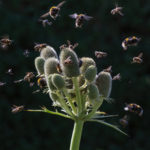
Guest Writer
A humble and holistic approach to climate and environmental challenges is critical for both agriculture and timberland, says Nuveen Natural Capital’s head of sustainability Cristina Hastings Newsome.
The investment characteristics of timberland and agriculture offer a compelling rationale for inclusion in larger multi-asset portfolios, says Manulife Investment Management’s David Fortin and Weiyi Zhang.
A sustainable approach to regenerative cropland transitions that prioritizes agronomic support for growers and core farm profitability should supersede ‘carbon farming,’ says Vayda’s CEO, Mike Shoemaker.
The need to reduce emissions from food production presents challenges – but also opportunities. Tenacious Ventures’ Matthew Pryor and Sarah Nolet explain.
Water entitlement prices fell from all-time highs in February 2023 to near-A$0 in June, before recovering some ground, writes Aither's Ben Williams.
Limited awareness of what is meant by natural capital and a fluid carbon credits regulatory landscape are among the difficulties in steering money towards the fledgling strategy, says Olly Hughes of Gresham House.
Insects represent a sustainable livestock feed alternative but British regulation is stuck with the same barriers erected in response to ‘mad cow’ disease in 2001, say Rachel O’Connor and Peter Smithers.
Climate change is causing financial issues for the agriculture sector, particularly when it comes to feed prices, says the FAIRR Initiative’s climate economist.
As the market begins to cool slightly, producers are increasingly trying to make themselves investor-ready – which presents an opportunity for buyers, too, say PwC's Kosta Kangelaris and Jaclyn Hope.
Evolving consumer demand is prompting food companies to seek sustainable solutions to their supply chain needs, says Mike LeSage, managing director at Proterra Investment Partners.














